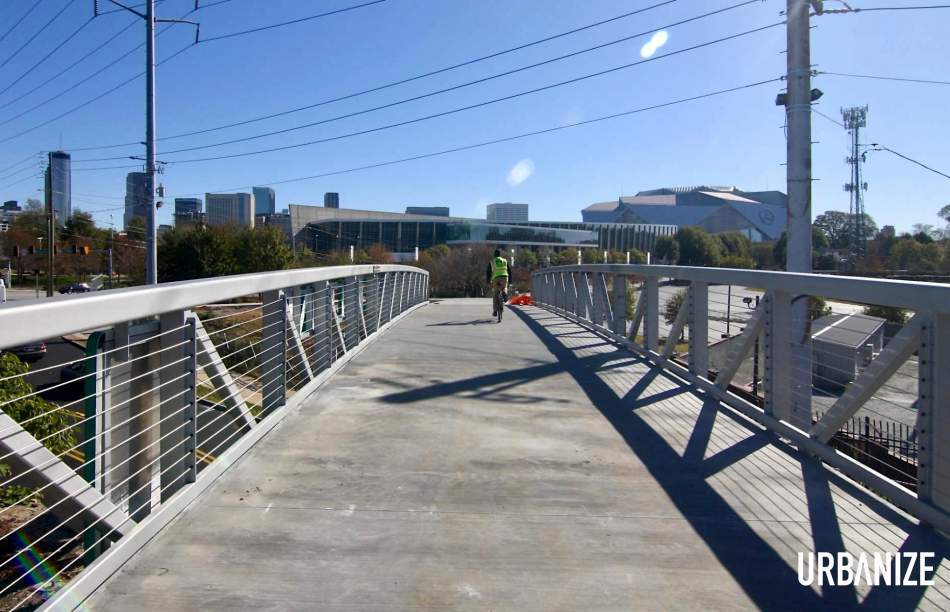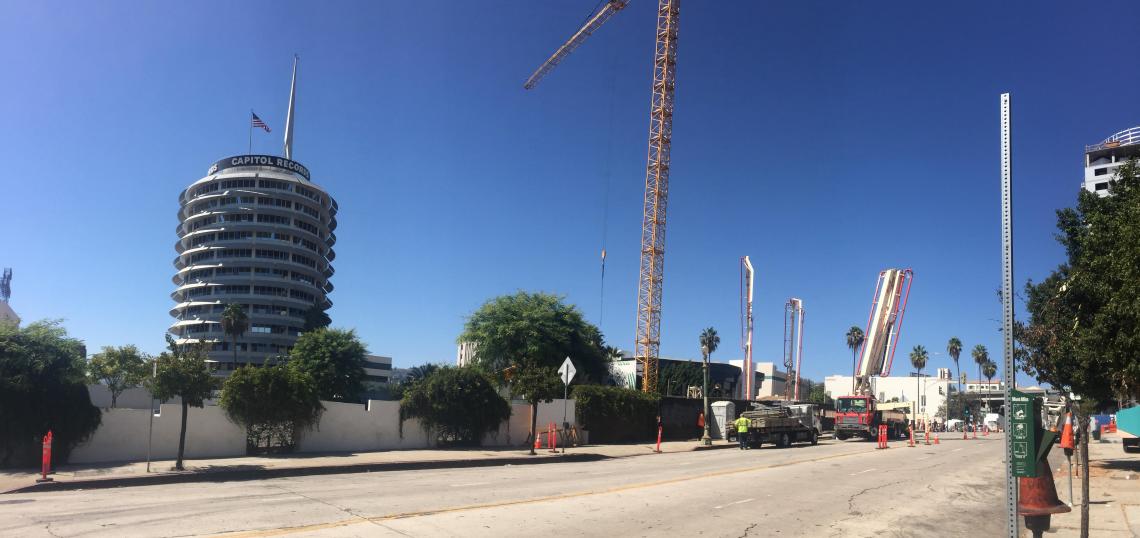Signs that Atlanta BeltLine construction could hit overdrive sooner than later continue to mount.
As reported on these pages earlier this week, the Atlanta City Council’s recent passage of a Special Service District to generate new tax funding is expected to considerably speed the construction process for BeltLine Southside Trail segments through neighborhoods southeast of downtown.
That means Grant Park, Boulevard Heights, and Ormewood Park could start seeing work to build a paved BeltLine in their backyards, so to speak, in early 2022, according to a recent Atlanta BeltLine Inc. report.
Now, BeltLine officials send word that a new partnership with the PATH Foundation is expected to expedite planning, design, and trail construction on the flipside of town with the Northwest Trail.
With PATH’s involvement, BeltLine officials have decided to cancel their search for an engineer consultant to analyze possible trail alignments through the tricky, 4.4-mile northwest quadrant that would link Huff Road on the Westside to Peachtree Creek in south Buckhead.
Active freight rail lines on the northwest portion present a significant hurdle—to the point that building trail and transit near the rail corridor might be impossible, project leaders have said. Alternate BeltLine routes could include roads and sidewalks, land next to waterways, or what’s currently private property.
Moving forward, PATH will manage procurement for what’s called the Northwest Trail Feasibility Study. Funding for the study will come from PATH’s coffers, preserving the BeltLine’s study budget for designing and constructing the Northwest Trail, as part of the expected $350 million SSD bucket that includes new tax revenue.
As BeltLine officials noted in a Wednesday statement, the agency and PATH "have a long history of successfully collaborating on [BeltLine segments],” dating back to the West End Trail in 2008, the Northside Trail in Buckhead in 2012, components of the Eastside Trail, and the Southwest BeltLine Connector in 2013.
But the recent team effort that is the Westside BeltLine Connector seems to have flipped a switch.
 One of four new or refurbished bridges along the new Westside BeltLine Connector. Josh Green/Urbanize Atlanta
One of four new or refurbished bridges along the new Westside BeltLine Connector. Josh Green/Urbanize Atlanta
Following construction of that 1.7-mile spoke, and as the BeltLine’s Westside Trail segment three begins to materialize from Marietta Boulevard to Huff Road, “the two organizations have developed a model that leverages the different strengths of both companies,” as BeltLine leaders relayed this week.
With a handful of employees, the PATH Foundation has managed to build out more than 300 miles of trails—roughly the distance from Atlanta to Charleston—since its founding 30 years ago.
Moving forward, the BeltLine will continue leading all community engagement initiatives, with PATH’s help. Meanwhile, PATH “will maintain established BeltLine design standards” and closely collaborate with the BeltLine’s in-house teams handling real estate, engineering, and landscape architecture, per the new arrangement.
As for the Northwest Trail’s transit outlook, the BeltLine expects to issue a separate Request for Qualifications this spring to determine transit’s feasibility by way of a federally funded study. “The selected consultants,” BeltLine officials noted, “will work together seamlessly to define both trail and transit alignments.”
The BeltLine’s northwest corridor is crucial for a truly regional trail network in Atlanta, creating possible links to the Silver Comet Trail, the existing BeltLine Northside Trail along Buckhead’s Tanyard Creek, and PATH400.
No timeline for the deployment of bulldozers on the Northwest Trail’s land was specified, but BeltLine officials did note: “PATH’s ability to quickly start the planning study is expected to significantly shorten the schedule for this phase of work.”
• Photos: 'Unprecedented' Westside BeltLine Connector officially opens (Urbanize Atlanta)






